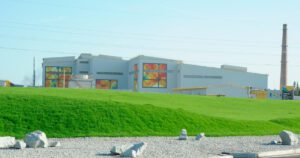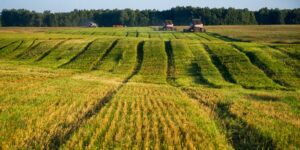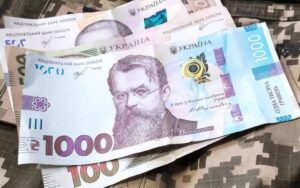
Capital investments of Vodafone Ukraine in 2022 amounted to about $100 million, not less than before the full-scale Russian invasion, NEQSOL Holding Ukraine regional director Volodymyr Lavrenchuk told the Interfax-Ukraine news agency.
“As a responsible investor in 2022, NEQSOL Holding supported the strategy of capital investments made by Vodafone Ukraine Group in the most difficult conditions at the level of last year. These are investments to provide communications for millions of Ukrainians and data transmission systems for various production and service sectors”, – said Lavrenchuk.
Investments were mainly used to maintain network stability and restore communications in the de-occupied territories, as well as to buy new equipment and improve the company’s coverage, the press service of Vodafone Ukraine specified.
“If during peacetime emergency works accounted for no more than 2% of all works, since the beginning of the full-scale Russian invasion they have taken up more than 95% of the time. Only for 9 months of 2022 more than 1 thousand repairs to restore damaged networks were carried out,” – noted in Vodafone Ukraine.
Since the beginning of the Russian invasion in Kyiv, Sumy, Chernihiv, Kharkiv, Zaporizhzhia, Donetsk, Mykolaiv and Kherson regions more than 500 Vodafone Ukraine base stations were damaged (of those that were able to survey). Operation of 577 base stations has been resumed, the company said.
According to the company, since March, Vodafone Ukraine has restored communications in more than 550 settlements, in particular in 123 towns and villages of Kherson region in the past week. Also 2.56 thousand kilometers of fiber-optic cable was renewed, the total length of unrecoverable and re-laid optics was 37 kilometers.
“Blackouts were an additional challenge. All equipment, except fiber optic, requires power supply and its absence is critical for network operation,” Vodafone Ukraine said, stressing that in order to ensure communication despite long blackouts they provide base stations with backup batteries, as well as use alternative power sources from diesel generators to solar panels.
Vodafone Ukraine in 2022 also invested in expanding coverage in the western part of the country, where most Ukrainians have moved since the war began. Since the beginning of the year, 150 base stations have been installed and a number of existing ones upgraded. In order to expand the 4G coverage 3.8 thousand base stations were installed, 250 new sites were built and 1.5 thousand 3G base stations were modernized.
Also the company continues to provide free services to Ukrainians, in particular in roaming, which has already been used by 14 million Ukrainians, the press service said.

Wealthy Russians subject to U.S. sanctions may try to evade them by investing in the U.S. commercial real estate market, the U.S. Treasury’s Financial Crimes Enforcement Network (FinCEN) warned. The regulator urged U.S. banks to be vigilant, noting that the complex financing schemes and opaque partnership structures used in this market can help hide funds, writes The Wall Street Journal. FinCEN is the recipient of suspicious activity reports that financial institutions are required to file when they detect signals that a transaction is potentially illegal. The warning for banks issued by the regulator on Wednesday is another attempt by the U.S. Treasury Department to prevent wealthy Russian citizens from circumventing financial sanctions, the WSJ notes. “Thanks to international pressure and economic restrictions imposed on Russia by more than 30 countries, there are fewer and fewer opportunities for sanctioned Russian elites to move and hide their ill-gotten gains,” said Himamouli Das, acting head of FinCEN. The regulator outlined a number of signs and “red flags” that should alert banks. For example, sanctioned Russians may try to use investment pools or offshore funds to avoid inspections, he warned. Banks are usually not required to identify people who own less than 25% of shares in the funds. Thus, sanctioned individuals can reduce their stakes to avoid scrutiny while still retaining control of the fund, FinCEN says. They may use front companies and multi-level schemes involving multiple legal entities or trusts, as well as transfer assets to other family members or business partners to hide their involvement, the regulator warns. It notes that sanctioned individuals may not only invest in high-end and luxury real estate. In some cases, they may look for more discreet investments that provide a stable income without attracting unwanted attention. Using such strategies to evade sanctions is just as likely in small and mid-sized U.S. cities as it is in metropolitan areas, FinCEN notes. Last year, the regulator issued a similar warning to banks, advising them to pay close attention to transactions involving art, luxury yachts and jewelry.

in January-September 2022, the international vertically integrated steel and pipe company Interpipe cut its capital investments by three times as against the similar period of the last year – to $15 mn from $45 mn.
According to a presentation of the company’s operations for the nine months of last year, capital investments in the period under review amounted to $7mn ($6mn in 9M2021), $8mn in steelmaking and $31mn in pipe production, while there were no investments in railroad operations ($8mn).
We would like to note that the figures for 9M-2022 are unaudited.
As we informed, in January-September 2022, Interpipe earned $185.952 mln, while during the same period last year it amounted to $32.338 mln (5.75 times more). The company made $199.975 mln of profit after tax, compared to $56.505 mln for the first nine months of 2021 (a 3.5 times increase). At the same time, revenues decreased by 9.3% to $686.634 mln. The company increased its free cash flow to $126.476 mln as of September 30, 2022, from $103.007 mln at the end of September 2021.
EBITDA at the end of September 2022 was $123.023 million ($51.508 million for the pipe segment, “minus” $3.287 million for the rail segment, $74.222 million for the steel segment, $580 thousand for other operations), compared to $150.876 million (“minus” $36.040 million, “plus” $15.351 million, $169.483 million and $2.082 million respectively at the end of 2021).
“Interpipe is a Ukrainian industrial company producing seamless pipes and railroad wheels. The company supplies its products to over 80 countries all over the world via a network of commercial offices located in the key markets of the CIS, the Middle East, North America, and Europe. In 2021, the company sold 602 thnd mt of tubes and 174 thnd mt of railroad products. The company sells its railroad products under the KLW brand.
There are about 10 thsd. employees in Interpipe.
The company consists of five industrial assets: “Interpipe Nizhnedneprovsky Tube Rolling Plant (NTZ)”, “Interpipe Novomoskovsk Tube Plant (NMTZ)”, “Interpipe Niko Tube”, “Interpipe Vtormet” and the electric steelmaking complex “Dneprosteel” under the brand name “Interpipe Steel”.
The ultimate owner of Interpipe Limited is Ukrainian businessman Viktor Pinchuk and his family members.

Onur, one of the largest road construction and repair companies in Ukraine, reduced the scope of work by 90 percent in 2022 because of the war and froze the implementation of almost all large-scale road infrastructure projects, Onur Group Ukraine chief coordinator Emre Karaahmetoglu said in a partner interview with NV.
“Despite the war, we still managed to complete some objects: we finished the roads in Khmelnytsky region and sections of the Kiev-Kharkiv highway, which we had been working on since 2019. Both projects were financed at the expense of the World Bank,” Karaahmetoglu noted.
He also said that since the beginning of the war, the company has been expanding accesses to customs points in the west of the country, has been building a new Irpen bridge near Kiev since late May, and is also working in the Kharkiv region after its de-occupation, where it is conducting emergency work to rebuild roads.
Karaahmetoglu added that the company recently won a tender to build three bridges in the Kiev region, which is financed by the British export credit agency UK Export Finance.
According to him, if it were not for the war, the company would have opened a new hotel in the center of Lviv, for which a building was purchased last year and reconstruction began. “After the war, we will quickly complete work on this project,” he pointed out.
The chief coordinator also said that Onur Group had already acquired several land plots in Lviv and Lviv region during the war and was thinking about what projects could be implemented.
Karaahmetoglu noted that the company’s other investment plans in Ukraine include mining, green energy, where Onur already has 150 megawatts from solar plants, and the agricultural sector with processing. “We have a small, about 5 thousand hectares of land in western Ukraine. We plan to double it. And then engage in processing of agricultural products”, – he specified.
The representative of Onur added that before the war the equipment for the development of sand pits in Lviv region and lines for production of bridge beams at the concrete plant in the west of the country were made for the company orders and said that they would be installed immediately after the war.
According to him, Onur also intends to complete such large-scale projects as the construction of the Zaporozhye bridge and the reconstruction of the runway at Dnipro airport after Ukraine’s victory, as well as initiating a project to build the Stryy-Mukachevo toll road, already developing technical documentation for it.
“There is a future for toll roads, they will be in demand after the war is over. In my opinion, this project should be engaged now”, noted Karaahmetoglu.
The representative of the company specified that the fleet of machinery in Ukraine is about 4 thousand units, as well as 20 asphalt plants, 15 concrete plants, 15 enterprises for the production of foundation, but several plants were lost during the war. Onur Group Ukraine currently employs about 2,000 people.
According to the company’s Facebook, it operates in 9 sectors, last year it performed road works in Moldova.
Onur Group is ranked 82nd in the top 250 largest contractors in the world by leading American publication ENR 2022.

The German concern Bayer AG, which specializes in biomedical solutions for healthcare and agriculture, has decided to continue supplying basic agricultural solutions to Russian farmers so that they can contribute to meeting global demand.
At the same time, Bayer hopes “that the Russian authorities will continue to provide free supplies of agricultural products” and “will not use food as a means of pressure on the world,” the company’s statement emphasizes.
At the same time, Bayer intends to invest heavily in Ukraine over the next decade. In particular, the company is investing more than EUR30 million in a seed plant in the Zhytomyr region to meet the demand for corn seeds in the country and abroad.
Bayer is fully committed to fighting what could become an unprecedented food crisis and shares the UN’s view that access to Ukrainian and Russian food is essential to reduce pressure on the global food system, the release notes.
Earlier, the company stopped deliveries to the Russian Federation and Belarus of those products that are not vital, and also suspended advertising and promotional activities, investments in these countries.

War risk insurance is the main condition for attracting investments to Ukraine, said the former US Ambassador to NATO and Special Representative of the US State Department for Ukraine in 2017-2019. Kurt Volker, at a meeting with members of the European Business Association (EBA) Warconomic Talks.
According to the EBA website, according to Volcker, covering war risks for investors should be a key issue in the coming months and years to attract investment in the Ukrainian economy. To do this, according to him, the governments of partner countries should direct a certain amount of resources to subsidize such insurance.
Volker noted that the war unleashed by Russia challenged the Ukrainian economy and became another factor that stirred up the global economic environment. Shutdown of business operations, interruption of logistics routes and supply chains, suspension of exports – all these factors put pressure on the economy and increase inflation. In this context, the financial support of the international community is very valuable, but Ukraine will need a lot of resources to recover. War is an emergency requiring extraordinary efforts, he said.
Answering the question whether American investors are ready to come to Ukraine, Volker noted that he sees significant support and interest in Ukraine, including from the private sector, but it is not yet completely clear what guarantees of security and return of investments, protection of interests investors. According to him, practical guidance is now needed on how foreign investors can bring money to Ukraine even in the conditions of war.